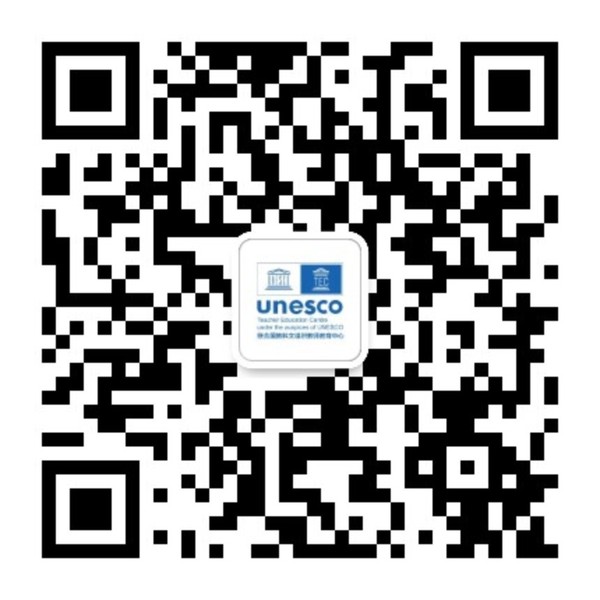On the morning of June 27, 2025, the closing ceremony of the 5th Hong Kong STEAM Education Leaders Exchange and Training Program was successfully held at the UNESCO Teacher Education Centre (UNESCO TEC). Attending the ceremony were Ms. Zhuang Rongping, Senior Curriculum Development Officer; Mr. Leung Yat-yin, Curriculum Development Officer; and Ms. Ho Lai-han, Curriculum Development Officer from the Education Bureau of the Hong Kong Special Administrative Region of the People's Republic of China (Hong Kong Education Bureau); Professor Zhang Minxuan, Director of UNESCO TEC; Professor Wang Jie, Deputy Director of the International Teacher Education Centre at Shanghai Normal University; and 32 primary and secondary school principals and teachers from Hong Kong. The ceremony was chaired by Professor Wang Jie.
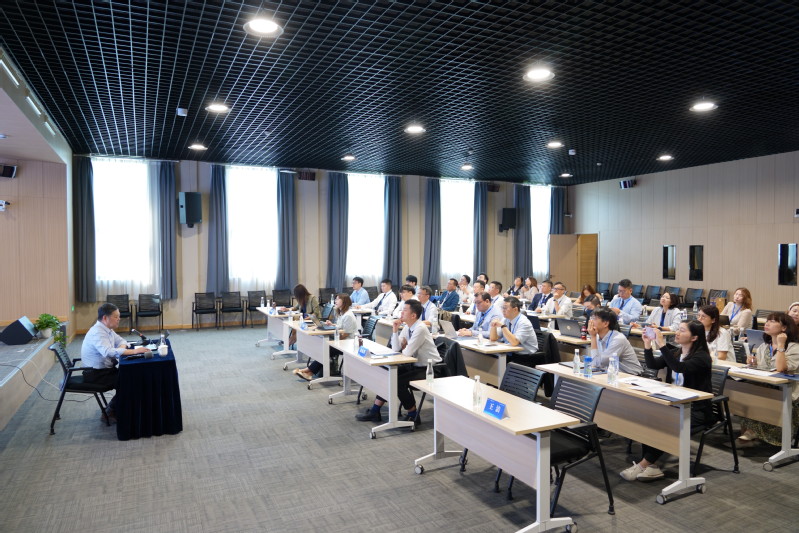
At the closing ceremony, a project summary video was played, leading participants to review many wonderful moments of the program. In the speech session, Ms. Zhuang Rongping spoke first. She expressed sincere gratitude to UNESCO TEC for its thoughtful arrangements and encouraged all participants to translate the knowledge and concepts learned into concrete practical applications. She noted that Shanghai's STEAM education practices are highly distinctive, serving as an important reference for Hong Kong's STEAM education development, and hoped that the two sides would continue to strengthen cooperation in the future.
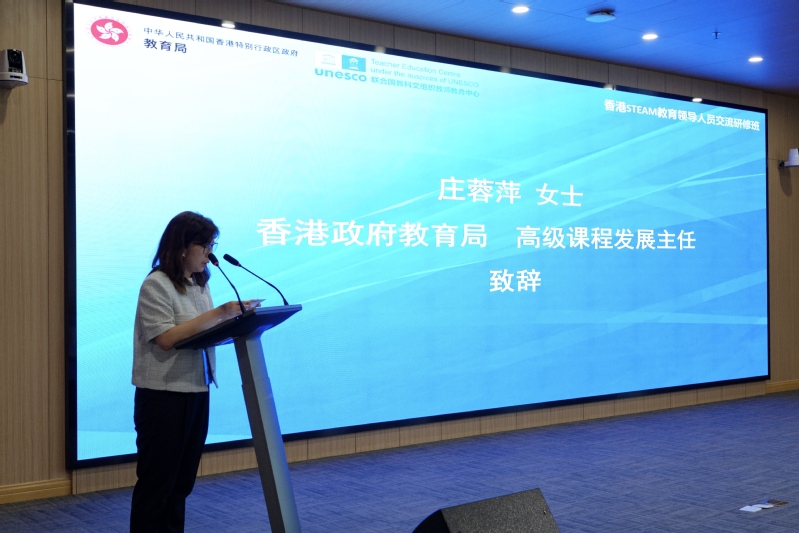
In his speech, Professor Zhang Minxuan thanked the Hong Kong education colleagues for their participation, emphasizing that Shanghai and Hong Kong are two pearls of the country and should jointly contribute to national development. He believed that exchanges should yield gains, and educators from both places should have a strong sense of responsibility and be lifelong learners. Finally, he expressed hope that the two sides would deepen interactions in the future and looked forward to meeting again.
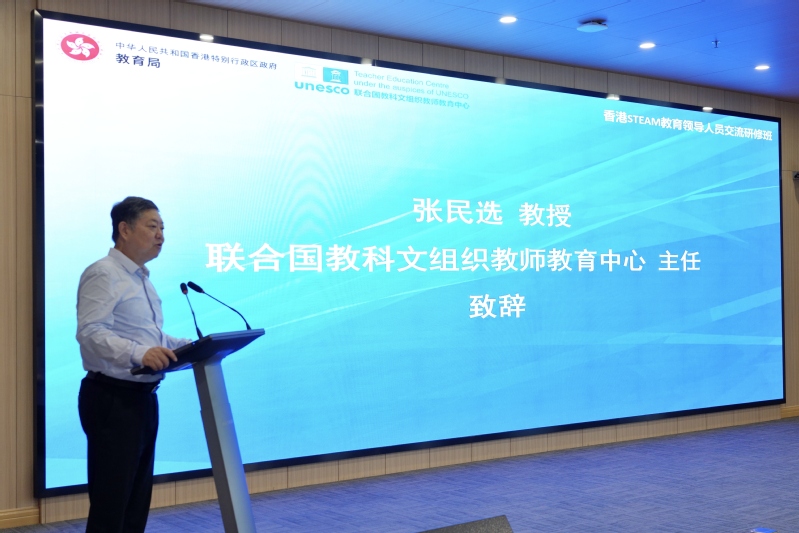
After the speeches, participants took turns to step up to receive their certificates of completion, and together they took a precious group photo amid warm applause, bringing the successful program to a perfect conclusion.
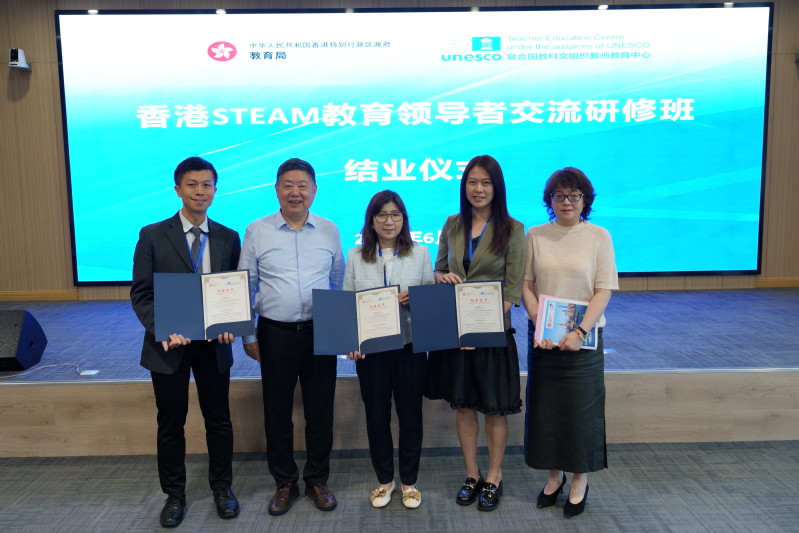
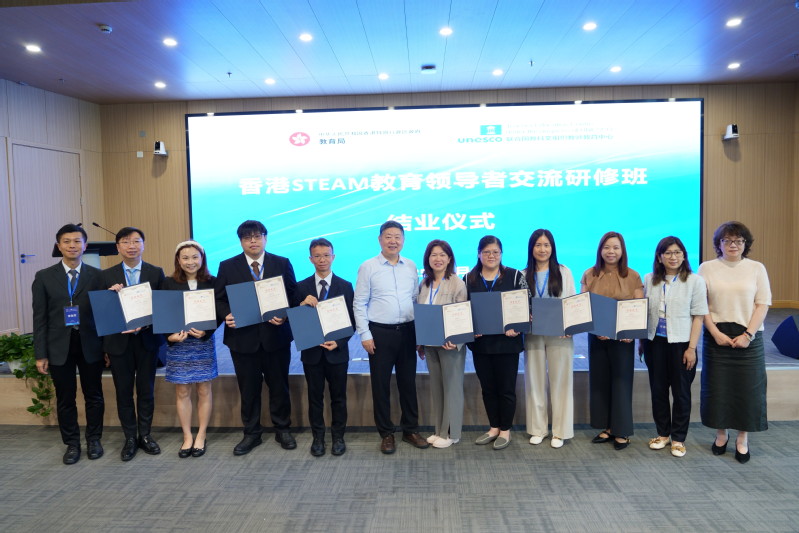
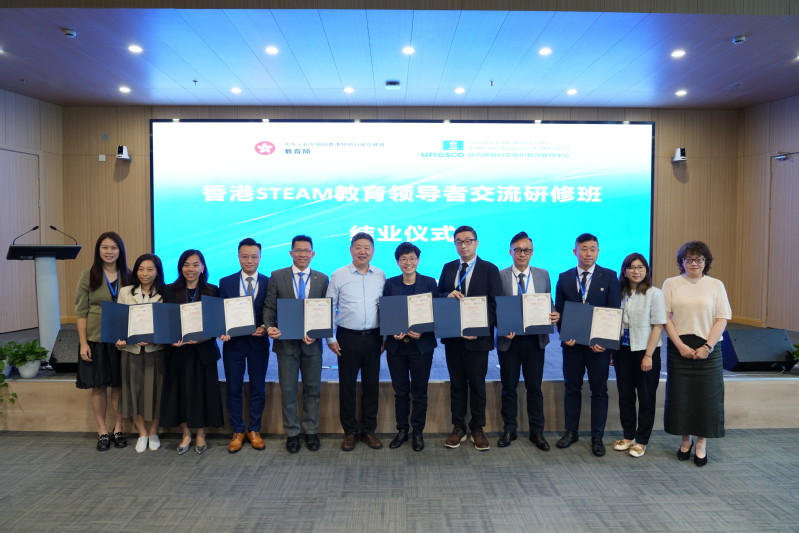
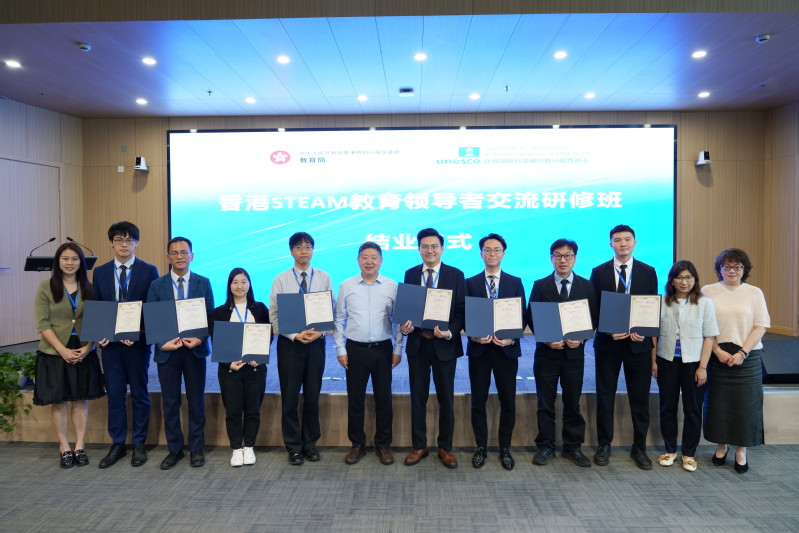
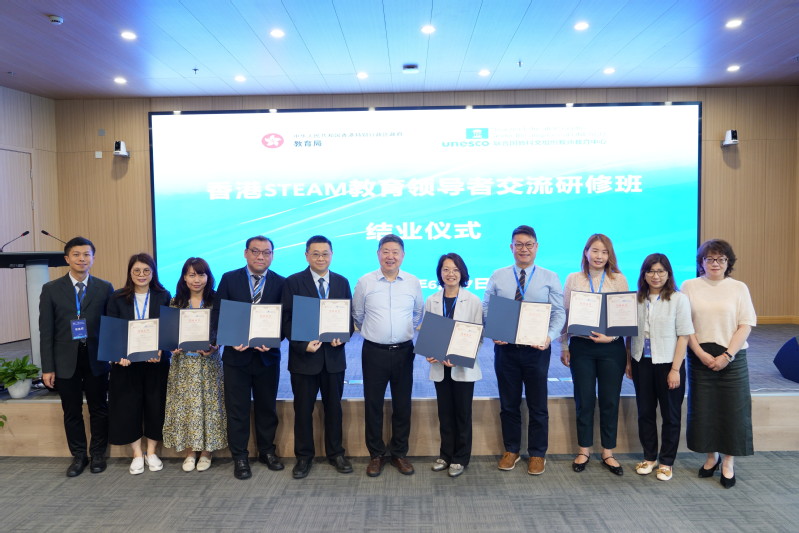
On the same morning, Professor Zhang Minxuan, Director of UNESCO TEC, delivered a lecture themed Shanghai's STEAM Education from the Perspective of PISA. He introduced Shanghai's performance in mathematics and science in PISA assessments, conducted an in-depth analysis of the background and measures adopted by major countries worldwide to promote STEAM education, and explored how to develop STEAM education in the AI era. Subsequently, Professor Zhang engaged in lively discussions with Hong Kong education colleagues on issues of mutual concern.
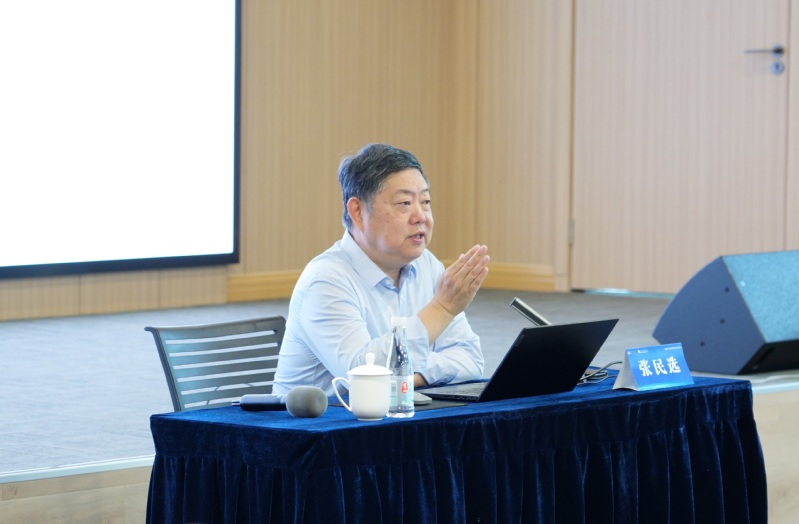
This program featured numerous highlights, with UNESCO TEC meticulously arranging five exciting lectures, one workshop, and two in-depth visits. Compared with the previous four sessions, this program added new visiting institutions: High School Affiliated to ShanghaiTech University and ShanghaiTech University. The lecture content included a new session titled In-depth Integration of Technological Innovation and Industrial Innovation delivered by Professor Xiang Shiqing from the Shanghai Institute of Optics and Fine Mechanics, Chinese Academy of Sciences. A new workshop themed STEM Teacher Competence Enhancement Training was also added, aiming to improve teachers' practical abilities in STEM teaching through hands-on operational discussions.
At High School Affiliated to ShanghaiTech University, participants first visited indoor and outdoor venues such as students' art exhibitions and the school's personalized learning spaces under the guidance of Mr. He Yangdong from the school office, interacting with teachers and students on site. Later, Mr. Zeng Guoguang, Principal and Deputy Secretary of the Party General Branch, and Ms. Li Bibo, Secretary of the Party General Branch, organized a discussion between the school's teachers and program participants. Participants listened to Principal Zeng's detailed explanation of the school's operation, educational goals and philosophy, and exchanged experiences, achievements, and teaching insights in STEAM education with the school's science faculty.
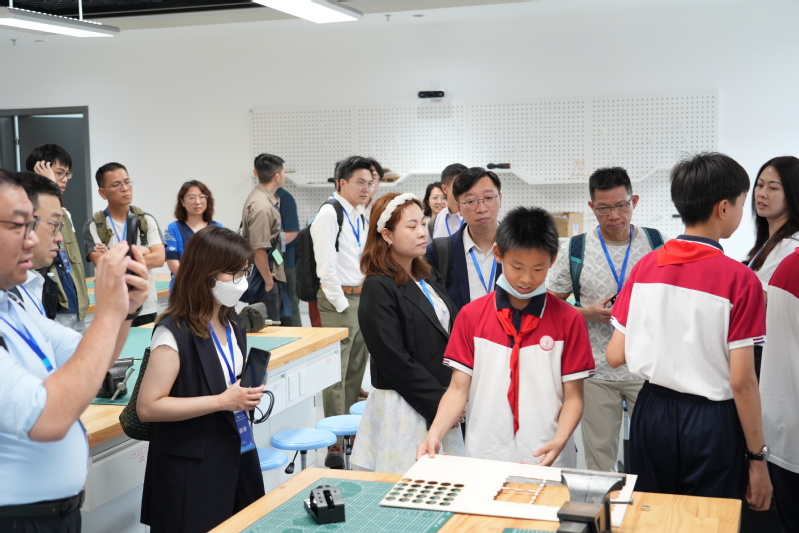
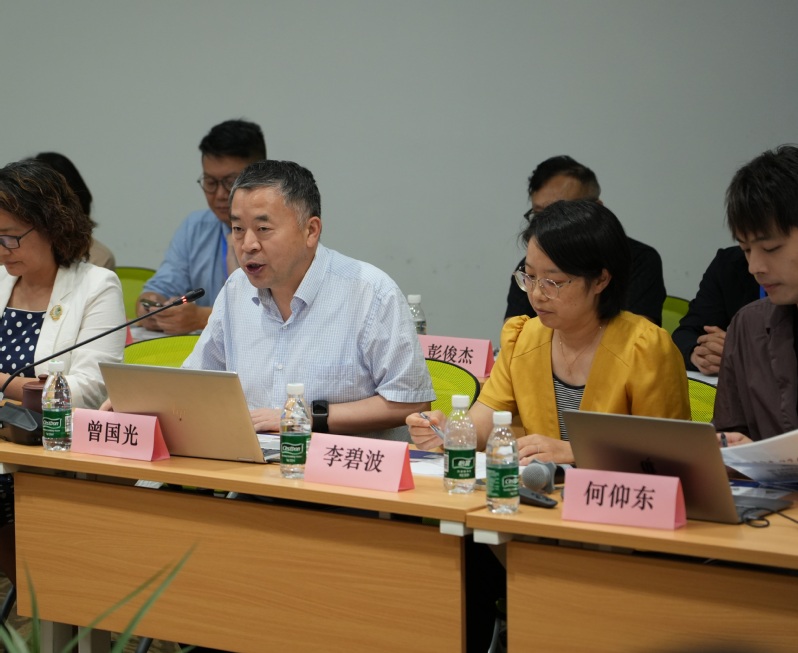
At ShanghaiTech University, participants visited the Multi-disciplinary Artificial Reality Studio (MARS Lab) under the guidance of Nie Yan, Deputy Director of the university's International Affairs Office. Studio members introduced their recent research achievements and vividly demonstrated their R&D products in the field of 3D modeling. Participants engaged in in-depth exchanges with the staff on the principles, operation methods, and application prospects of related technologies.
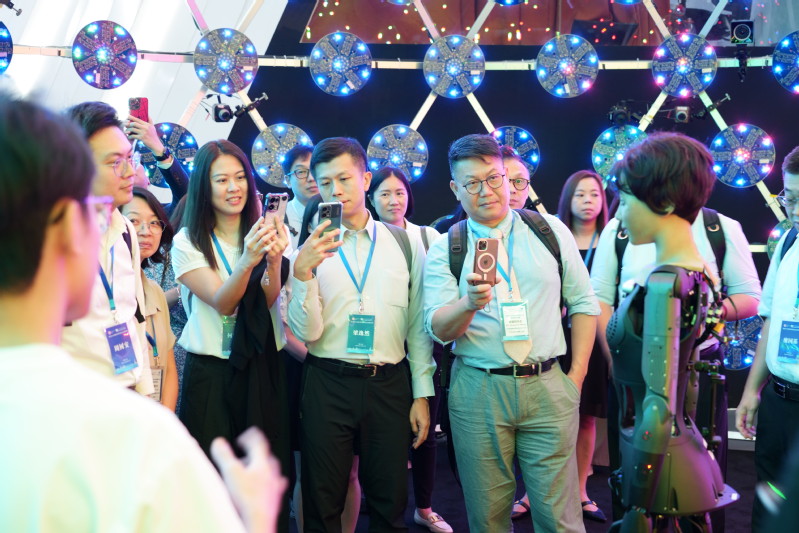
Professor Xiang Shiqing's lecture focused on innovative development issues worthy of attention and planning in current international development, and elaborated on the adaptability between technological development and education. He analyzed the three types of innovation, the basic processes and stages of innovation, and the evolution of the technological connotation process in achieving innovation, further discussing the natural logical relevance and progressive regularity between science, technology, engineering, and mathematics. Starting from the logic of natural and social development and evolution, he proposed a regional science and innovation system framework. Based on this, he emphasized that in the process of technological development, primary and secondary schools also need to put forward adaptive development ideas and models.
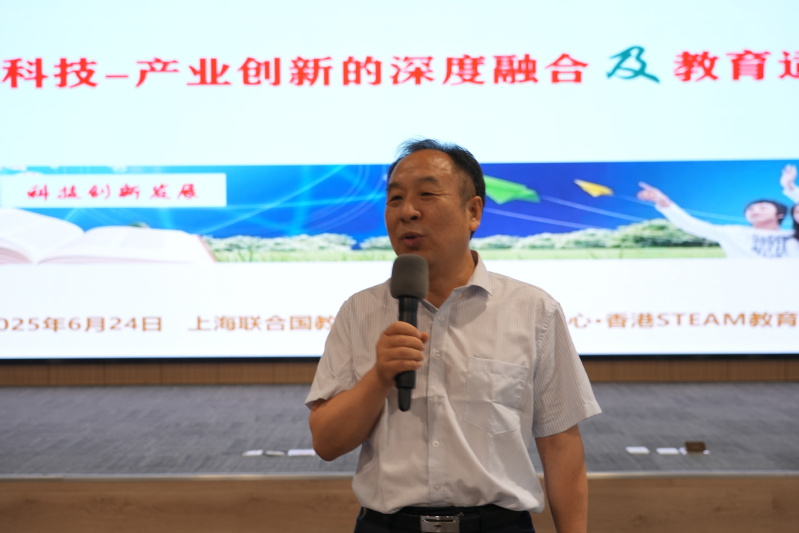
The workshop, themed STEM Teacher Competence Enhancement Training, focused on the introduction and practical operation of AI educational products. The AI education team led by Professor Wang Gong from Shanghai Normal University shared two AI educational products: MetaClass and Xingkongban (Airboard) experiment kits, and guided participants to hands-on experience the realization of basic functions of Xingkongban experiment kits. Participants exchanged insights during the practice and deepened their understanding of STEAM education practices through interactive communication.
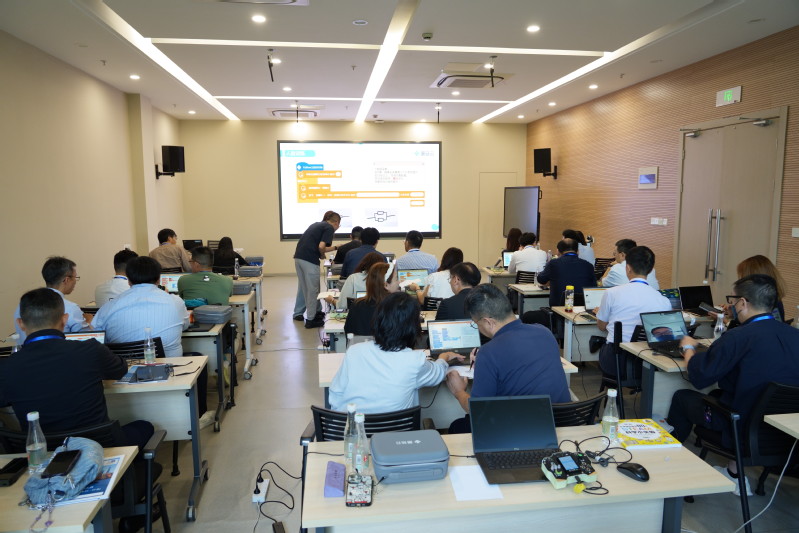
The successful conclusion of this program also marked the perfect end to the five-series Hong Kong STEAM Education Leaders Exchange and Training Program. Co-organized by the Hong Kong Education Bureau and UNESCO TEC, the program aims to enhance principals' and teachers' understanding of national policies and practices related to science education and STEAM education, and broaden the vision and strategic thinking of primary and secondary school STEAM education leaders. Although the training program has ended, interactive exchanges will not stop. The training cooperation project built by Shanghai and Hong Kong in the field of education not only provides an open and shared exchange platform for STEAM educators from both sides but also will continuously fuel pragmatic cooperation in the future.
(Photos/Contribution by: UNESCO Teacher Education Centre)




